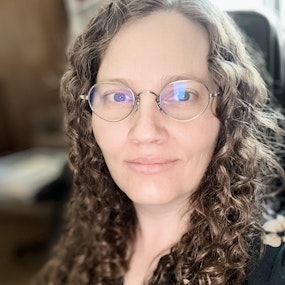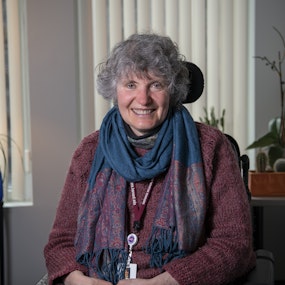ROBERT JOHNSON:
This is the award-winning Public Health Review Morning Edition for Wednesday, March 13, 2024. I'm Robert Johnson. Now, today's news from the Association of State and Territorial Health Officials.
LISA IEZZONI:
What you want to do is set in place within hospitals and other health care facilities, the systems and tools that would allow you to care better for older people with disabilities.
JOHNSON:
"The Washington Post" says Dr. Lisa Lezzoni is considered the godmother of research on disability. She's a professor at Harvard Medical School who worries the U.S. isn't ready to accommodate the coming wave of seniors with disabilities. Take for example, the exam tables found in every doctor's office.
IEZZONI:
It would really be best if you had an exam table that didn't require a climb and there are automatic exam tables that can lower to a height where the person can simply sit down. And then the physician can elevate the exam table. And so the table is at a good height for the physician to perform the examination.
JOHNSON:
Iezzoni has a long list of concerns. Another has to do with patients who have trouble hearing.
IEZZONI:
And there are tools that are available now that you can have available that have little microphones that can make the sound a little bit louder, and so somebody can hear more easily if you're talking to them.
JOHNSON:
She tells healthcare organizations to do the math and think ahead.
IEZZONI:
Do projections forward to what the population that you expect to be seeing in the next five to 10 years will look like and that will give you a sense of what accommodations you might need to have available for people.
JOHNSON:
The federal government is involved in at least two initiatives designed to address Lezzoni's concerns you can read about them in a recent Washington Post article. The link is in the show notes.
A listeria outbreak discovered in early January, continues to worry public health officials. That concern is linked to contaminated cheese products from a plant in California. Jennifer Botsford is with the Arizona Department of Health Services
JENNIFER BOTSFORD:
I think that, honestly, most state health departments and local health departments have gone through this many times. So, I think everybody's probably pretty experienced in this, unfortunately.
JOHNSON:
People in at least 11 states have been sickened so far. Botsford says a successful response depends on good communication.
BOTSFORD:
I think that communicating with each other is what helps us find these larger outbreaks and working together to identify the source and then communicate that back out to the community.
JOHNSON:
Botsford adds, it's also about the ground game.
BOTSFORD:
Our food safety sanitarians do routine inspections of any kind of food establishment that's licensed, and they will make sure that these products are not being sold at the grocery store or at restaurants to make sure that there's no further availability to people so that they're not continuing to to consume these products.
JOHNSON:
You can read the latest about the listeria outbreak using the link in the show notes.
Also, today, public health agencies are considering the pros and cons of artificial intelligence. O'Keyla Cooper has more.
O'KEYLA COOPER:
A recent ASTHO blog article addresses the growing use of AI in public health focusing on generative AI technology. While exploring its potential for generating health content, there are also concerns about the validity of information. State policymakers are actively evaluating AI use and privacy protections in this evolving technological landscape. Read more by clicking the link in the show notes.
JOHNSON:
Finally this morning, ASTHO is hiring a senior accountant to handle project accounting work. You can read more about this job and others by clicking the link in the show notes.
Before we go a reminder also to follow this newscast on your podcast player and connect with ASTHO on social media. We are on LinkedIn, Twitter, and Facebook.
That'll do it for today. We're back tomorrow morning with more ASTHO news and information. I'm Robert Johnson. You're listening to the award-winning Public Health Review Morning Edition. Have a great day.






